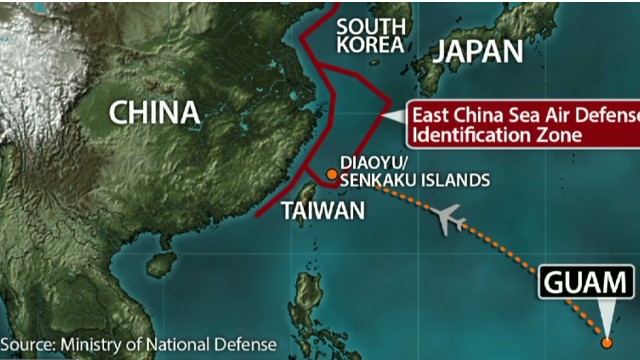
Unable To Ease Tensions: The American Stance Toward China
China is testing Japan-U.S. solidarity with the issue of its creation of an air defense identification zone in East China Sea airspace.
In a conference on Dec. 3, U.S. Vice President Joe Biden and Prime Minister Shinzo Abe were in agreement on continuing to deal jointly with China without giving silent approval to this air defense zone. The following day, Biden communicated the same standpoint to China’s President Xi Jinping. It can be said that, for the time being, the decision to not tolerate the attempt to forcibly alter the status quo of the East China Sea has been demonstrated to China.
In the midst of that, however, remarks have been issued from Washington that China could take advantage of. There was a press conference with Defense Secretary Hagel and U.S. Army General and Chairman of the Joint Chiefs of Staff Dempsey.
“… It's not that the ADIZ itself is new or unique. The biggest concern that we have is how it was done so unilaterally and so immediately without any consultation or international consultation.” Speaking in this way, Secretary Hagel pressed for a calm response from Japan, China and South Korea. Chairman Dempsey also indicated that the biggest issue is not that China created an air defense zone, but rather the heavy-handed way China is trying to operate it.
If its operational procedures were changed to international standards, would the air defense zone created by China be accepted? In an about-face, the U.S. Press Secretary stated on Dec. 5, “We, the United States, do not recognize it and we do not accept it,” but it is unclear where the U.S. has placed its emphasis.
Even if China alters operational procedures, Japan can’t afford to accept the present air defense zone, the number one reason being that it includes the Senkaku Islands. The creation of the air defense zone in itself is not illegal by international law, but if it goes as far as including the aerial domain of neighboring countries, then it is a problem of a completely different dimension.
While maintaining neutrality about the right of attribution of the Senkaku Islands, the U.S. has made clear its policy that it would become subject to the Japan-U.S. Security Treaty. We need the U.S. to have a strong awareness of the issue regarding China’s inclusion of Senkaku airspace in the air defense zone.
